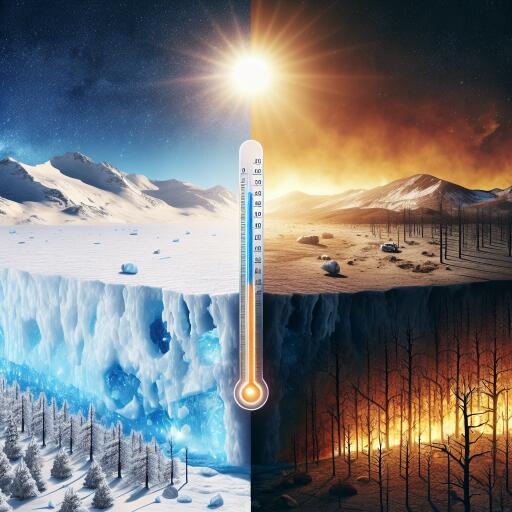
At a glance – The albedo effect and global warming
The albedo effect, derived from the Latin term for “whiteness,” serves as a critical measure in understanding our planet’s climate dynamics. Essentially, it quantifies the proportion of sunlight that is reflected back into space by a surface, rated on a scale from 0 (absorbing all sunlight) to 1 (reflecting all sunlight). This concept holds pivotal implications for global warming and the Earth’s energy balance.
Consider an everyday analogy: the difference in sensation when wearing a white shirt versus a black shirt under the intense sun. The white shirt keeps you cooler, an effect attributable to its higher reflection of sunlight compared to the heat-absorbing black shirt. This simple observation mirrors a vast, global phenomenon impacting the climate.
Solar radiation, consistently beaming down on Earth, interacts variably with the planet’s surface depending on its albedo. Changes in the Earth’s surface conditions, notably in areas like the Arctic, exemplify how shifts in albedo influence our climate. A fresh snowfall over Arctic sea ice can reflect a substantial 90% of incoming sunlight. However, as seasons change and snow melts, the now exposed, dark surface of the ocean only reflects about 6%, absorbing the rest and further warming the planet.
This transition from reflective snow to absorbent sea signifies not a direct cause of climate change but a feedback loop. In response to the external push of increased greenhouse gas emissions heating our atmosphere, the Arctic is experiencing rapid warming. This diminishes snow and ice cover, unveils less reflective ground, and propels a cycle where more energy is retained, accelerating the warming process.
Clouds, visible from space, dramatically underscore the variability of Earth’s albedo. Their brightness and coverage significantly affect the planet’s reflectivity. Through advanced satellite technology, we have begun to observe shifts in Earth’s overall albedo. Recent findings suggest a subtle yet consistent decrease, potentially linked to ocean warming and consequent changes in cloud cover. Such transformations highlight albedo’s intricate role in our climate system—a cog that, while fluctuating, trends towards a worrying decline amidst global warming.
Scientific inquiry into albedo emphasizes the necessity for long-term data. Given the natural variability “noise” inherent in short-term observations, a comprehensive understanding of albedo’s impact on climate requires decades of consistent monitoring.
In essence, the albedo effect underscores a complex interplay between the Earth’s surface and the climate. As reflective ice and snow diminish, replaced by darker surfaces that absorb more solar energy, our planet edges closer to a tipping point in its energy balance. Acknowledging and addressing the factors that drive these changes is paramount in our efforts to mitigate global warming.
Understanding the albedo effect and its implications for global warming provides a clear lens through which we can view the urgent need for climate action. It’s a reminder of the delicate balance upon which our planet’s climate hinges and the profound impact human activities have on this balance. As we continue to uncover the nuances of this dynamic, let us also champion the changes necessary to preserve our planet for generations to come.





Leave a Reply